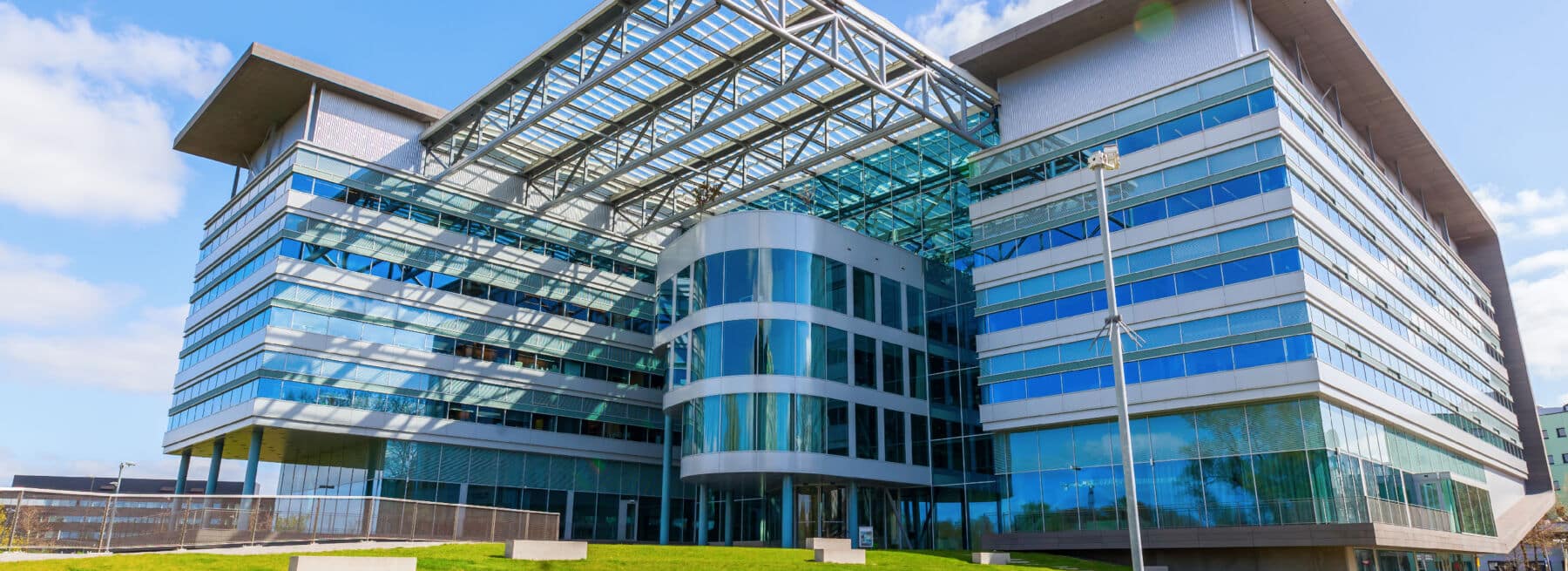Commercial property management is witnessing a transformation. It is being spurred by the seamless integration of Building Management Systems (BMS) and security infrastructures. As more and more cities are developing and expanding, it has become increasingly important to ensure the safety and security of people and properties while maintaining operational efficiency.
Per MarketsandMarkets, the BMS market is valued at over $19 billion, which indicates the importance of BMS in modern infrastructure management. The integration of BMS with security systems is not just a trend, but a big step towards creating intelligent, secure, and efficient environments. This collaboration goes beyond the traditional boundaries of property management, leading to centralized control, real-time monitoring, and quick incident responses
By integrating security systems with BMS, commercial properties can reap numerous benefits. This approach combines security and BMS to create a stronger defense against unauthorized access, vandalism, and theft. It helps ensure a safer environment for occupants and protects valuable assets. Additionally, this integration is economically viable, as it can simplify operations, eliminate the need for multiple systems, and reduce maintenance costs.
In this article, we will discuss the advantages of integrating commercial property security systems with BMS, explaining how this approach enhances efficiency, strengthens security, and provides a cost-effective solution for commercial properties.
Here’s a deeper dive into the topic and how it can be a cost-effective solution for commercial properties.
Centralized Control and Monitoring
Most commercial buildings have independent control systems for various functions like HVAC, lighting, and evacuation procedures, among others. This also includes the BMS which takes care of fire and security aspects.
Each of these systems traditionally has its own dedicated controllers, data servers, and workstations for event logging and report generation. However, integrating these systems, particularly the security systems, into a unified BMS brings about centralized control and monitoring. This centralized approach allows for real-time monitoring and quicker responses to incidents, helping enhance the security of the property significantly.
Enhanced Operational Efficiency
One of the key benefits of this integration is the efficient management of resources. A unified system can streamline operations, minimize the need for multiple systems, and reduce maintenance costs. Through the integration, all operations become centralized, simplifying the management and operation of security systems.
Moreover, the Physical Security Information Management (PSIM) software can link disparate building control systems, fostering relationships between building control systems and events. This can help improve operational efficiency and situational awareness.
Cost-Effectiveness
Financial benefits are notable with integrated systems as they can reduce overhead by improving overall protection. Automated solutions brought about by the integration could potentially lower operational costs in the long run.
Enhanced Security and Safety Measures
An integrated BMS can maximize the performance of a facility’s security systems by creating automatic workflows that initiate lockouts, turn on emergency lighting, or open doors in case of emergencies. These automated responses can potentially avert life-threatening situations, reassure workers of their safety, and aid first responders in taking appropriate actions.
Improved Occupant Well-Being
The integration also plays a role in creating and maintaining safe, healthy buildings. For instance, foot traffic patterns revealed by video analytics can inform BMS load patterns. The settings for ventilation and temperature controls can be adjusted to improve occupant comfort and well-being.
Unified Situational Awareness
Having a unified platform aids in managing building subsystems through a centralized hub, providing holistic building management. This centralized hub or dashboard can track key performance indicators for security, occupant well-being, air quality, energy efficiency, and space utilization, allowing for adjustments when and where needed.
Integrating BMS and Live Video Monitoring
One of the key elements in this integrated system is live video monitoring, which plays a crucial role in real-time security management. By integrating live video feeds into the BMS, security personnel can monitor all areas of the property in real time, allowing for immediate detection and response to any unusual or suspicious activities. This setup not only enhances the surveillance capabilities but also allows for quicker decision-making and response in emergency situations. The combination of live video with other security systems, such as motion detectors and access control, creates a comprehensive security solution that can preemptively identify potential threats and respond accordingly. Furthermore, the integration of these systems can lead to more efficient resource allocation, as security personnel can be deployed more effectively based on real-time information from the BMS. This approach not only improves security but also optimizes operational efficiency, making it an invaluable asset for commercial property management.
The integration of security systems with Building Management Systems (BMS) in commercial properties is a prudent move that goes beyond conventional security setups. The centralized control it provides over various building functions and security systems, coupled with enhanced operational efficiency and improved occupant well-being, not only augments the security of the property but also proves to be a cost-effective solution in the long run.
For more information about live video monitoring and the benefits of a proactive security solution for your commercial property, contact us.
Texas Private Security License Number: B14187
California Alarm Operator License Number: ACO7876
Florida Alarm System Contractor I License Number: EF20001598
Tennessee Alarm Contracting Company License Number: 2294
Virginia Private Security Services Business License Number: 11-19499
Alabama Electronic Security License # 002116
Canada TSBC License: LEL0200704

